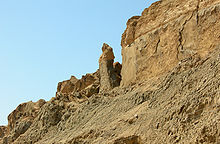- Crime and punishment in the Bible
-
Part of a series on The Bible 
Biblical canon
and booksOld Testament (OT)
New Testament (NT)
Hebrew Bible
Deuterocanon
Antilegomena
Chapters and verses
Development and
authorshipAuthorship
Jewish canon
Old Testament canon
New Testament canon
Mosaic authorship
Pauline epistles
Johannine works
Petrine epistlesTranslations and
manuscriptsSamaritan Torah
Dead Sea scrolls
Masoretic text
Targums · Peshitta
Septuagint · Vulgate
Gothic Bible · Vetus Latina
Luther Bible · English BiblesBiblical studies Dating the Bible
Biblical criticism
Historical criticism
Textual criticism
Canonical criticism
Novum Testamentum Graece
Documentary hypothesis
Synoptic problem
NT textual categories
Internal consistency
Archeology · Artifacts
Science and the BibleInterpretation Hermeneutics
Pesher · Midrash · Pardes
Allegorical interpretation
Literalism
ProphecyPerspectives Gnostic · Islamic · Qur'anic
Christianity and Judaism
Inerrancy · Infallibility
Criticism of the Bible Bible book
Bible book
The Hebrew Bible is considered a holy text in most Abrahamic religions. It records a large number of events and laws that are endorsed or prescribed by the God of Israel. Judaism teaches that the Torah contains 613 eternal commandments, many of which deal with law and punishment. Some Christian denominations have also adopted many of these directives.
Contents
In the Book of Exodus
Moses negotiated the Exodus from Egypt with Pharaoh leading to the Ten plagues.
When Pharaoh enslaved the Children of Israel, the Egyptians appointed conscription officers over the Israelites to crush their spirits with hard labor. The Israelites were to build up the cities of Pithom and Ra'amses as supply centers for Pharaoh. The Egyptians started to make the Israelites do labor designated to break their bodies. They made the lives of the Israelites miserable with harsh labor involving mortar and bricks, as well as all kinds of work in the field. All the work they made them do was intended to break them.[1] then he issued decrees to kill all the Israelite males[2] God hardened Pharaoh's heart, so that he would not allow the Hebrews to leave, and then God sent various disasters onto the whole of Egypt. The cycle ends with the story of the killing of every firstborn child in Egypt as the final punishment for having enslaved the Israelites.[3]
The Midianites
The people of Midian together with Moab began to interact with the people of Israel. The Israelites were staying in Shittim when the Moabite girls invited the people to their religious sacrifices. The people ate, and worshiped the Moabite gods.[4]
For these transgressions, the Midianites were attacked by Moses and his followers.[5] When Moses learned that some Midianites had been spared,[6] he ordered all males and non-virgin females killed, and all the virgin females to be taken captive.[7] The virgins were divided among the priests and the people, and are listed among the livestock sacrificed in "heave offerings".[8] For their hesitation in killing the children, God punished the Israelites with a plague.[9]
Special punishments
 Mount Sodom, Israel, showing a pillar referred to as "Lot's Wife", made of halite.
Mount Sodom, Israel, showing a pillar referred to as "Lot's Wife", made of halite.
- Noah cursed Canaan to become a slave as punishment for Canaan's father Ham seeing his Noah's nakedness.[10] Some interpretations hold this phrase as a euphemism for either rape or castration[who?].
- Lot's wife was turned into a pillar of salt as punishment for looking back when fleeing Sodom and Gomorrah.[11]
- God killed Onan for "spilling his seed" on the ground[12]
Examples of the death penalty
See also: List of capital crimes in the BibleThe Bible prescribes the death penalty for the following activities, among others:
- Murder
- Adultery
- Bestiality[13]
- Rape [14]
- Engaging in sodomy [15]
- Picking up sticks on Saturday[16]
- A betrothed woman who does not cry out while being raped[17]
- A woman who is found not to have been a virgin on the night of her wedding[18]
- Worshiping other gods[19][20]
- Witchcraft (Exodus 22:18)
- Taking God's name in vain or cursing God's name[21]
- Cursing a parent[22][23][24]
- Kidnapping[25]
Modern view
Some contemporary critics of the bible have viewed its laws as morally repugnant. Common criticisms include:
The Bible tacitly endorses certain forms of slavery, and records many laws and procedures dealing with slaves.
The Bible's strictures on homosexual sex are seen as outmoded by some groups. As well, the Bible's endorsement of capital punishment and its restriction on adultery are often viewed in a similar light. On the other hand, more conservative critics are more critical of the Bible's permissivity toward polygamy.
Even among proponents of capital punishment, many of the crimes which the Bible records as punishable by death are not currently regarded as deserving of this penalty. Examples include idol worship, as well as the crimes of striking or cursing one's parents.
References
- ^ Exodus 1:11-14 [1]
- ^ Exodus 1:15-16
- ^ Exodus 6-14
- ^ Numbers 25:1-2 [2]
- ^ Num 31:1-54)
- ^ Num 31:15
- ^ Num 31:17,18
- ^ Num 31:32-35
- ^ Numbers 31:16
- ^ Genesis 9.20-9.25
- ^ Genesis 19:26
- ^ Genesis 38:5
- ^ Leviticus 20
- ^ Deuteronomy 22
- ^ Leviticus 18 and 20
- ^ Numbers 15:32-36
- ^ Deuteronomy 22:23-4
- ^ Deuteronomy 22:13-22
- ^ Deuteronomy 13:6-13:10
- ^ Exodus 22:20
- ^ Leviticus 24:16
- ^ Exodus 21:15, 21:17
- ^ Leviticus 20:9
- ^ Mark 7:10
- ^ Exodus 21:16
- Thomas Paine, Age of Reason, 1795.
Categories:- Bible
- Hebrew Bible topics
- Punishments in religion
Wikimedia Foundation. 2010.
